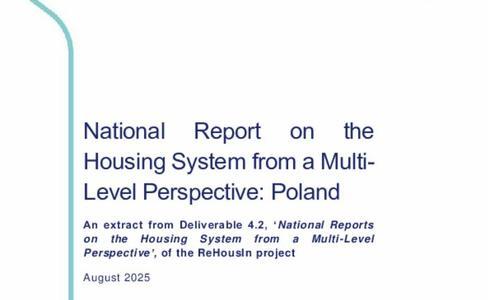National report on the housing system from a multi-level perspective: Poland
An extract from Deliverable 4.2 “National reports on the housing system from a multi-level perspective”
Poland’s housing system is dominated by market mechanisms, with state support focused on promoting homeownership through subsidies and mortgages. Public and social rental housing remain marginal, while local governments face financial constraints despite being formally responsible for social provision. Crises such as the post-socialist transition, global financial crisis, COVID-19, the war in Ukraine, and inflation have prompted temporary interventions (e.g., rent freezes), but have not altered the overall recommodification trend. Key challenges include a lack of strategic housing planning, limited public stock, and a fragmented, weakly regulated private rental sector.
The growth of private rental schemes (PRS), especially in urban centers, has worsened affordability and spatial inequalities. Institutional tools like TBS and SIM remain underdeveloped, while housing financialisation erodes tenure security. Climate policy has brought sustainable housing and energy efficiency into focus, notably via retrofitting and green construction. However, initiatives like “Clean Air” often benefit wealthier homeowners, reinforcing structural inequalities. Urban densification can lead to gentrification and displacement, further marginalizing vulnerable groups.

Publication date:
Languages: English